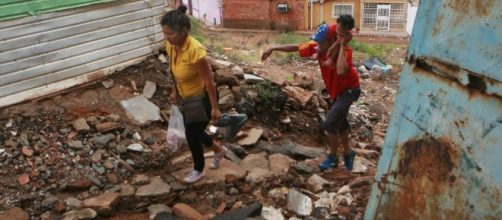"The diet of Maduro makes you hard". The comic phrase in Spanish spoken by the President of the Republic in September last year, when he mocked the thinness of a member of the United Socialist Party of Venezuela, does not awaken today a humorous tone for the rest of the population of the country. In the midst of a severe economic crisis, with inflation in the three digits, famine has been severely scourging the Venezuelans. According to Encovi, an institution that verifies living conditions in the country, on average, Venezuelans lost 8.7 kg of their weight, uncontrolled only in the last year.
Domestic and wild animals are being consumed by the population to survive
To escape the drama of hunger, the population has been feeding on any kind of animal: dogs, cats, lizards, donkeys, anteaters and even flamingos, which are protected by law in order to survive. Not infrequently, one finds carcases of these animals in the garbage of the city. "Sometimes we only find heads, guts and legs of the animal. We are used to seeing a bit of this in the past, but now this practice is out of control and on the rise, "Robert Linares, a waste disposal worker, told the Miami Herald. The lack of food has gained the name of 'Mature Diet'. In the words of Doris Rubio, CEO of the Association for the Protection of Animals, there is a synthesis on the suffering of the population subjugated to the notorious diet: "We find these deaths grotesque, but how can we be critical of someone who hunts a pigeon, a dog , A cat or any other animal because he or she is hungry People used to hunt lizards for sport.Now they do it out of necessity.
Crisis in the country makes it difficult to import food
The collapse of the country's economy has made it difficult to import basic goods such as food and medicines, creating scarcity across the country. Faced with a lack of resources, the population has been looting supermarkets in desperate search for food. Besides the opprobrium experienced by the population, there are still risks of consuming wild animals unfit for human consumption, where the ingestion of bacteria from these animals are human health hazards.

